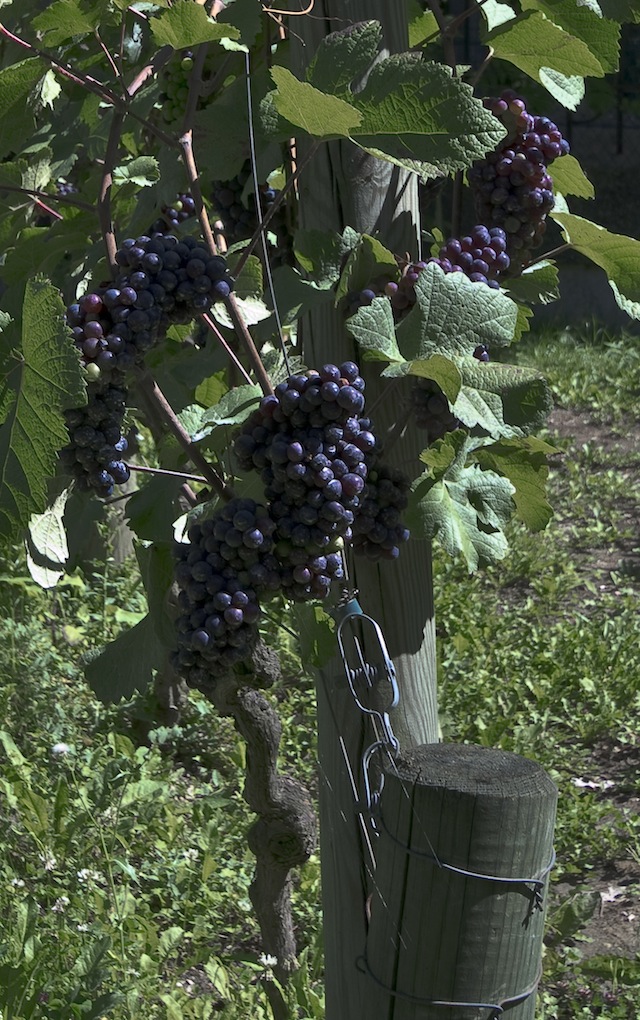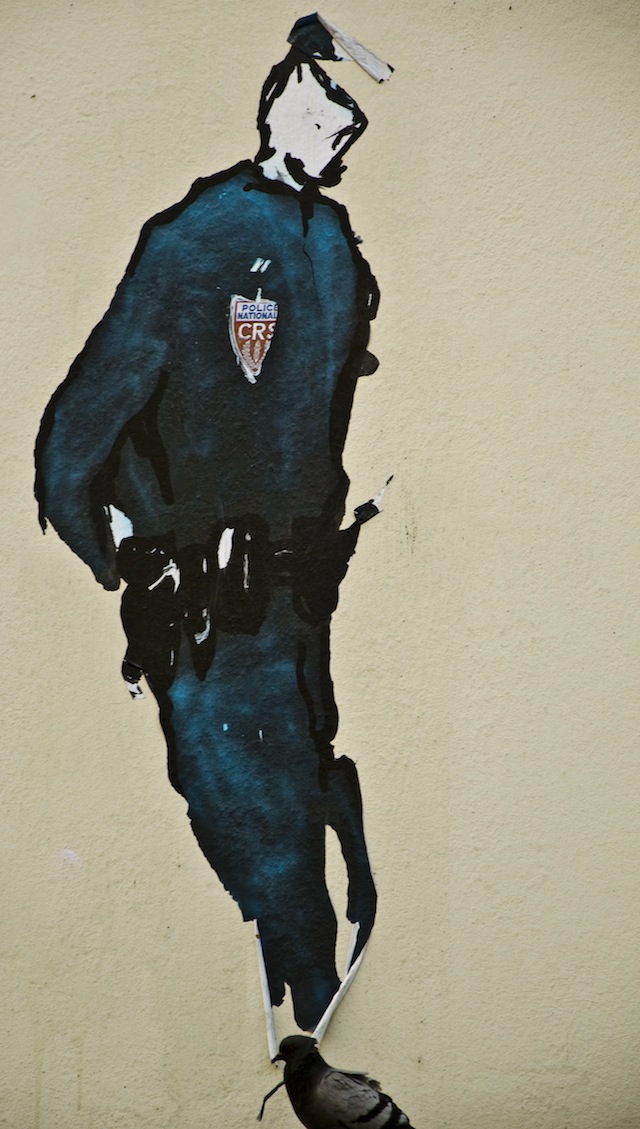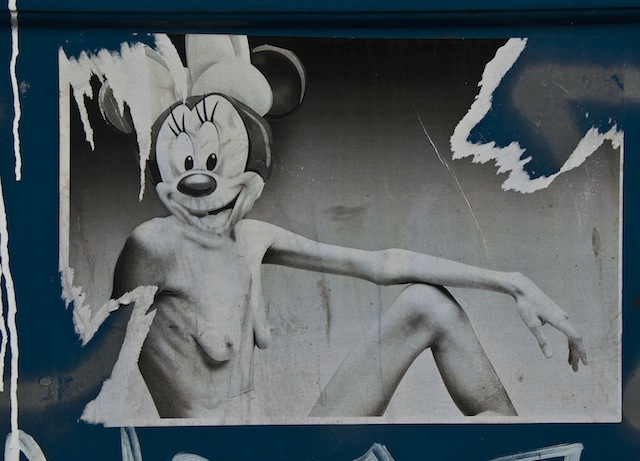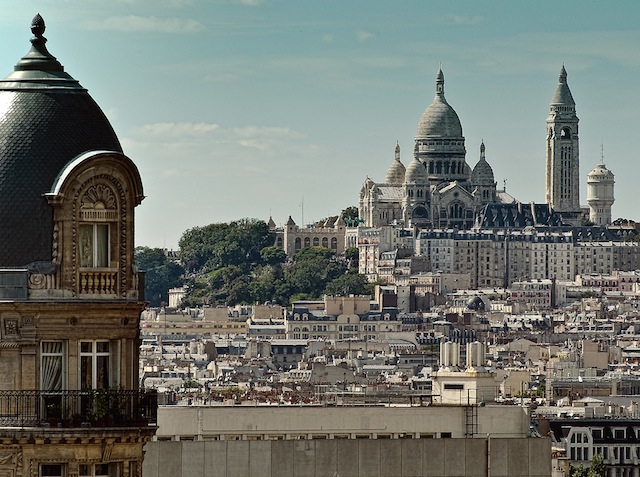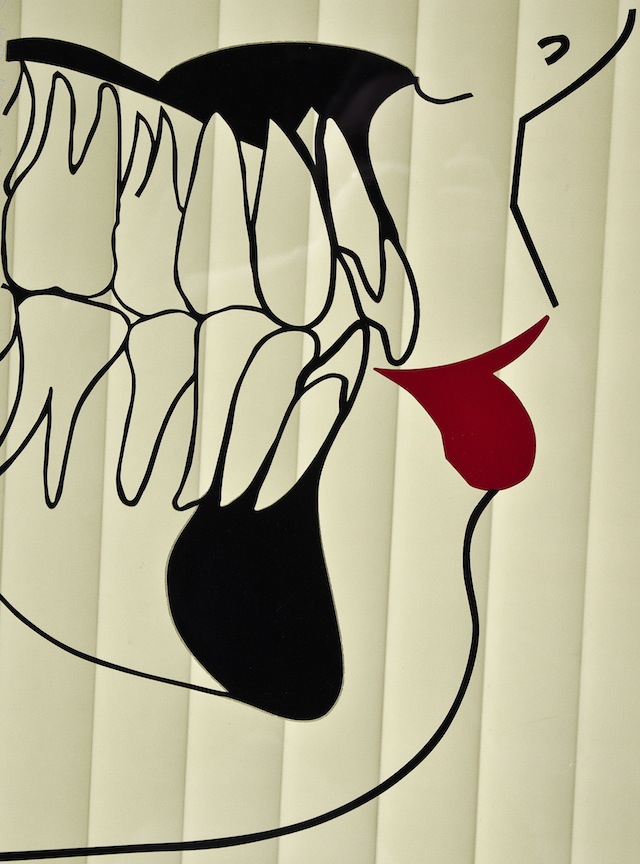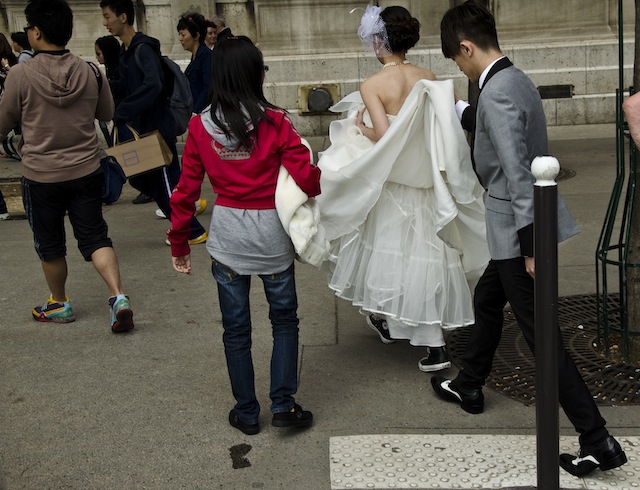
If you were to travel to the Loire Valley town of Chinon, here is what you would see:
A low white train station with an elevated clock tower.
A fruit and vegetable store, the Marché Rabelais, across the street.
Many houses for sale, Tudor-style and stone, lining the cobbled-stone streets.
A histrionic-looking Joan of Arc astride her horse, straining against the reins.
A wide river with wooden skiffs moored along the banks.

Many young people whipping along the sidewalks in state-of-the-art wheelchairs.
A statue of the French novelist Rabelais (who was born here) with a square cap on his head, at the end of a street that ends at the river Vienne.
A fortress high up on the town's highest hill.

If you were to stay at the hotel, Lion d’Or, here is what you would notice:
A hot color scheme: not just the bright red Indian bedspread, but also pink walls, and burgundy carpet. You might think you’d been trapped in a box of Valentine’s Day candy.
But then, when you opened the window, you’d feel as if you’d opened the box and bit into the tastiest little chocolate.
Geraniums (more red!) in the window boxes.
Plane trees arching above your room and the street.
A breeze of precisely the right temperature.
We had traveled by Métro to Paris’ Montparnasse train station.
We’d taken the high-speed TGV for just over an hour to Tours.
We’d disembarked with our suitcases, and boarded a bus for a ride of equal length to Chinon, past rural villages and bright fields of sunflowers.

Friends were getting married. They got married each time they had a child, and the second one was now on its way. We’d missed the first wedding, but were glad to be here for this one.
The celebrations would begin the next day. Now we wanted to rest after our travel.
But first we needed to stock up on water and snacks. We unpacked, then wheeled our empty suitcases back along the cobbled street to the Marché Rabelais.
How can I convey to you the dearness of this market? It was so simple, mostly fruit and vegetables, with some nuts and beans and olives. Nothing fancy. Nothing slick. Neither a supermarket nor a farmer’s market. But the owners clearly had the most personal relationship with their vegetables and fruit.
They treated heads of lettuce like little people, friends of theirs. A sign said, Touchez moi avec délicatesse.... Je tiens à mes feuilles.

The shelves were stepped, with no refrigeration, each step containing just a few bouquets of broccoli or carrots, with plenty of breathing room. As if each were being displayed as a discrete offering, an individual life calling out, Pick me! No, me!
The peaches were fairly screaming, Adopt us! Take us home!
The figs were humming in low voices. I couldn’t resist picking up a container, though I hadn’t had a yen for figs in years. Richard was seduced by the trail mix.
The farmer-merchant stood among the potatoes, giving them his full attention. He called out a few gruff words to his stout wife at the cash register. She barked back, but was friendly, though shy, with us.
“Ahh!” she said, as Richard loaded the six packs of large water bottles evenly into our carry-ons. “That’s why you come with suitcases.”
We rolled our suitcases back to the Lion d’Or, and unpacked them onto the desk in our room.

I bit into a peach which dripped so that I had to lean out the window and "water" the geraniums.
Richard opened a container of trail mix so fresh that it seemed as if the nuts had been cracked that day.
We stretched out and listened: to the doves calling, “Amour, amour,” the crows engaged in a strenuous quarrel, the murmur of French and English in the sidewalk café below.
A breeze. A nap.
At 6, we went out to find dinner. In the section of town west of the hotel, we found cobblestone streets closed to traffic. We scanned the menus along the way. None served dinner before 7:30 p.m. Mais non! It’s France.
We were too hungry to wait. Meandering down a side street, I saw a wine bar, La Cave Voltaire. Inside was a big butcher block, with a freshly-baked loaf of bread on top. To tide us over till dinner, we’d have a bit of bread and cheese.
We settled at a table outside with a view of the fortress.
After a while, a young woman with abundant curly blond hair and a wholesome manner brought us a plate of cheese.
“Now I will explain the cheeses,” she said delicately in French.
They were arranged in an artful circle around the edge of the plate—five made from vache, five from chèvre. The waitress lovingly named each one.

By the time she had finished her litany (it was a song!), we were enchanted. Richard neatly divided the plate in half. “La vache pour moi; le chèvre pour toi.”
But on his third cheese with bread, he began to mew, and said (though he knows I prefer goat cheese), “You have to try this one.”
Obedient wife, I spread it on bread.
The taste began as mild, then turned slightly disgusting, then lingered, a delicate taste. It was the best cheese either of us had ever tasted.
We scoured the plate.
The girl came back and asked us brightly if we had enjoyed our cheese.

“What is the name of the cheese which has a slight aroma of garlic and onion?” Richard asked.
“Ca n’existe pas,” she said. (Really? It doesn’t exist?) “Only our fromager makes it. It’s called a Coulouvier mascarpone ciboulette.” (Only their personal cheese-maker makes this particular cheese? Ooh la la.)
I took out my small Moleskin, and asked her to list the cheeses in the notebook. She carefully wrote down each one, with a “(v)” for vache, or a “(c)” for chèvre beside each.
The sidewalk café had filled, perhaps with people who’d smelled our ecstatic food trail pheromones. We heard German, English, Dutch, Spanish, French all around us.
The restaurants were open now.
“Do we want to eat any more?” Richard asked.
“I need an omelette,” I said.
We returned to At’ Able, an inviting restaurant we’d passed on rue Rabelais.
The hostess brought us menus. Cold. A brusque waitress came to take our order. Cold. She had all the humanity of a rock. Opaque, not a trace of kindness about her.

The omelette had local mushrooms, tiny buds. It’s a simple dish—how could you ruin it? But they did. “It was almost inedible,” I said, as we walked back to our room. “Runny in the middle, tasteless, and gray.”
“My pasta sucked, too,” said Richard.
Back at the Lion d’Or, I tried a fig. It was exquisite. I began to sing.
All day, the food had matched the spirits of the people serving it. Cold and lousy at one restaurant. Warm and astonishingly good from the Marché Rabelais and La Cave Voltaire.
Maybe it was the spirits of the writers hovering over their namesake food purveyors. Perhaps it brings good luck to name a restaurant or market, Le Café de Beauvoir, or Le Marché Baudelaire. What do we really know about the magical links between the material world and the spirits, anyway?

 08.20.2011
08.20.2011 
